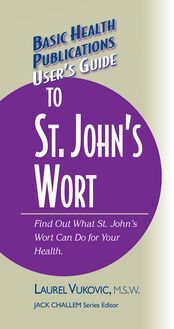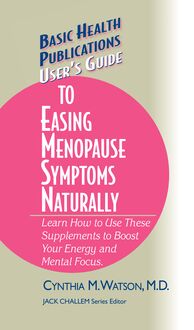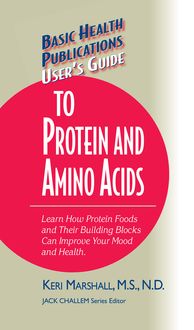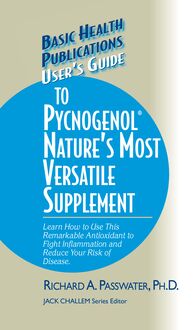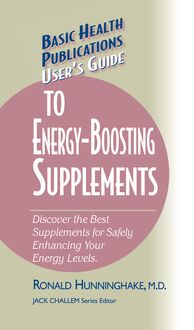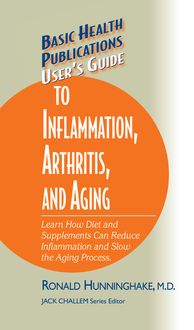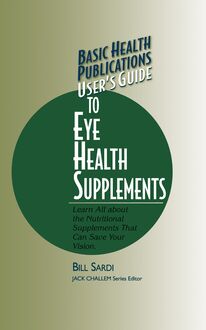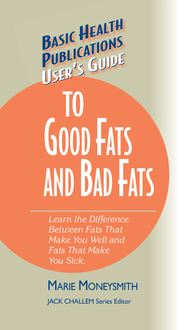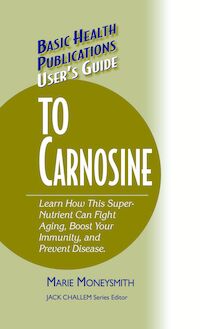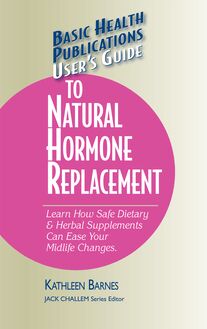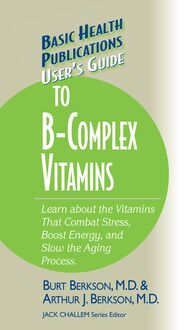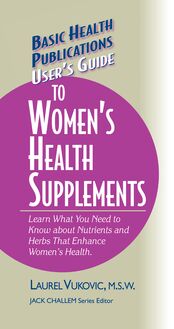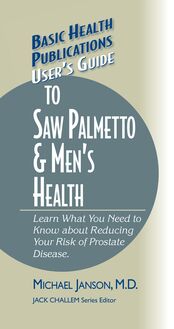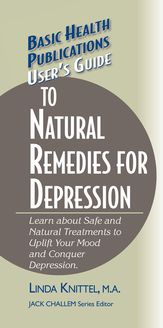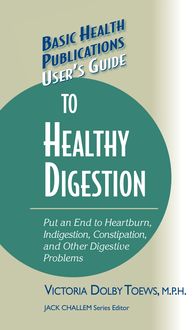User's Guide to Chromium , livre ebook
47
pages
English
Ebooks
2003
Vous pourrez modifier la taille du texte de cet ouvrage
Obtenez un accès à la bibliothèque pour le consulter en ligne En savoir plus
Découvre YouScribe en t'inscrivant gratuitement
Découvre YouScribe en t'inscrivant gratuitement
47
pages
English
Ebooks
2003
Vous pourrez modifier la taille du texte de cet ouvrage
Obtenez un accès à la bibliothèque pour le consulter en ligne En savoir plus
Publié par
Date de parution
01 janvier 2003
Nombre de lectures
0
EAN13
9781591206064
Langue
English
Publié par
Date de parution
01 janvier 2003
Nombre de lectures
0
EAN13
9781591206064
Langue
English
The information contained in this book is based upon the research and personal and professional experiences of the author. It is not intended as a substitute for consulting with your physician or other health care provider. Any attempt to diagnose and treat an illness should be done under the direction of a health care professional.
The publisher does not advocate the use of any particular health care protocol but believes the information in this book should be available to the public. The publisher and author are not responsible for any adverse effects or consequences resulting from the use of the suggestions, preparations, or procedures discussed in this book. Should the reader have any questions concerning the appropriateness of any procedures or preparation mentioned, the author and the publisher strongly suggest consulting a professional health care advisor.
Series Editor: Jack Challem
Editor: Carol Rosenberg
Typesetter: Gary A. Rosenberg
Series Cover Designer: Mike Stromberg
Basic Health Publications User’s Guides are published by Basic Health Publications, Inc.
8200 Boulevard East
North Bergen, NJ 07047
1-201-868-8336
Copyright © 2002 by Melissa Diane Smith
ISBN-13: 978-1-59120-606-4
ISBN-10: 1-59120-012-1
All rights reserved. No part of this publication may be reproduced, stored in a retrieval system, or transmitted, in any form or by any means, electronic, mechanical, photocopying, recording, or otherwise, without the prior written consent of the copyright owner.
Printed in the United States of America
10 9 8 7 6 5 4 3 2 1
C ONTENTS
Introduction
1. Basics about Chromium
2. Nutritional Therapy for Diabetes
3. A Protector against Cholesterol Problems, Syndrome X, and Heart Disease
4. An Aid in Fighting the Battle of the Bulge
5. An Antiaging Agent
6. A Natural Remedy for Depression and Premenstrual Syndrome
7. Other Benefits and Areas for Future Research
8. How to Buy and Use Chromium
9. Nutrients and Other Factors That Enhance Chromium’s Effects
Conclusion
Selected References
Other Books and Resources
I NTRODUCTION
C an a trace mineral make a huge difference in health? Absolutely, especially when that mineral is chromium. Needed in minute amounts by the body, chromium promotes optimal health by protecting against the most common chronic diseases in our modern world.
Why is chromium so health promoting? Chromium helps the blood–sugar-lowering hormone, insulin, function more efficiently. This benefit may seem minor or only important for diabetics, but it’s important for all of us. Insulin, the master hormone of our metabolism, regulates the body’s breakdown of carbohydrates, protein, and fats for energy. Obviously, the better insulin functions, the better the body functions.
We now know that most health problems and chronic diseases that plague the Western world are brought on by uncontrolled blood sugar and disturbances of insulin function. By helping insulin work more effectively, chromium combats these problems—not only several different types of diabetes, but also obesity, prediabetes, hypoglycemia, unhealthy cholesterol levels, high blood pressure, Syndrome X, and heart disease. By keeping insulin and blood sugar levels in check, chromium can also delay the effects of aging. It is even helpful in some cases of depression, premenstrual syndrome, seasonal affective disorder, and osteoporosis. In other words, chromium is a tiny nutrient that packs a mighty therapeutic punch for its size.
Nutritionally speaking, it’s usually best to get nutrients from food whenever possible. However, chromium levels have been depleted from our soil, and few foods today have high amounts of chromium. Amazingly, 90 percent of Americans don’t receive adequate amounts of chromium from their diets. What’s more, most Americans eat excessive amounts of sugar and refined grains, which deplete chromium levels.
With most people running on low levels of chromium, it shouldn’t be surprising that the incidences of insulin-related health conditions such as type II diabetes and obesity are at all-time highs. But they don’t have to be. Insulin-related health problems are nutritional diseases that can be corrected and prevented with nutrition. One of the first places to start is with chromium supplementation.
All nutrients are important, but chromium may be a little extra important in this day and age. Delve into this book and find out the many reasons why.
CHAPTER 1
B ASICS ABOUT C HROMIUM
C hromium is an essential nutrient that’s needed for optimal blood sugar function. Lack of dietary chromium is widespread in industrialized nations and is a contributing factor in the development of many common blood–sugar- and insulin-related health problems.
A Mineral Needed in Small but Regular Amounts
Chromium is a mineral, not a vitamin. Vitamins and minerals are both necessary for health, but minerals are simpler in chemical form and are tiny in comparison to vitamins.
Minerals
Elements that cannot be broken down into simpler substances. A trace mineral is one that is needed in very tiny amounts.
Unlike calcium and magnesium, which are found in large amounts in the body, chromium is a trace mineral found in minute amounts. It doesn’t take much chromium to fulfill our basic need for this mineral. However, if we don’t get the small amount we need, our health suffers.
Chemistry: Nutritional versus Industrial Chromium
It should be pointed out that chromium in this book refers to nutritional chromium, which is technically known as trivalent chromium because it has a net electronic charge of plus three (+3). There is another type of chromium, hexavalent chromium (Cr6+), which I’ll call industrial chromium, just to keep it simple. Industrial chromium forms as a byproduct of certain industrial processes, such as the making of stainless and hard-alloy steel.
If you saw the movie Erin Brokovich , you may recall that industrial or hexavalent chromium has been shown to cause cancer. But don’t be alarmed: industrial chromium has nothing to do with nutritional chromium—and nutritional chromium cannot change into industrial chromium inside the body. There are numerous examples of substances having vastly different properties in different forms. For example, oxygen is health promoting in some forms, while it is hazardous to health in other forms.
If you read about chromium in scientific terms, here’s how to keep the two forms straight: When you hear about hexavalent chromium, think of “hex” as something that brings you very bad luck. However, when you hear the prefix “tri” in trivalent chromium, think “Three’s a charm.” As you read this book, you’ll learn just what kind of magic nutritional chromium can do for people with many different kinds of blood–sugar- and insulin-related health problems.
Trivalent Chromium
The scientific name for nutritional chromium, the type of chromium we need for health.
Chromium’s Essentiality Discovered in the 1970s
By the 1950s, chromium was known to help control blood sugar in animals, but it wasn’t until 1977 that chromium was proven to be essential for human health. Hospitalized patients who could not take in food by mouth were given Total Parental Nutrition (TPN)—a solution of all the nutrients they needed to maintain health—directly into their veins. Some of these patients developed high blood sugar levels and other diabetic-type symptoms. Doctors tried to start insulin therapy to treat the condition, but it didn’t work very well.
Physicians got the idea that the patients were showing signs of chromium deficiency. Small amounts of chromium were added to the patients’ intravenous feeding solutions. With the addition of this one nutrient, the patients quickly improved: their blood sugars and other abnormalities returned to normal. The Food and Drug Administration (FDA) and the Food and Nutrition Board of the National Research Council, therefore, designated chromium an essential trace mineral for human health.
The Relationship between Chromium and Insulin
To understand what happens when we don’t get enough chromium, it’s important to understand more about chromium and the hormone insulin.
Insulin is the master hormone of our metabolism. It controls blood sugar levels, regulates many aspects of the breakdown and utilization of carbohydrates, fats, and protein for energy, and directly affects certain genetic processes. Keeping insulin working correctly is an important factor in health.
Insulin
A key metabolic hormone that lowers blood sugar levels by increasing the rate at which glucose is taken up by cells throughout the body.
Here’s where chromium comes in: the trace mineral helps insulin work more efficiently to allow blood sugar (or glucose) to move from the blood into the cells. Glucose is a fuel that cells need for energy.
Researchers still don’t know exactly how chromium does its magic, but it may help insulin attach more easily to the necessary molecular docks. Also, it may be involved in enzyme reactions that lead to increased insulin sensitivity (or receptivity). Regardless of the mechanism, without chromium, the blood–sugar-lowering hormone insulin won’t work properly and blood sugar, in turn, will rise to unhealthy levels.
Insulin Resistance—The Root of Many Health Problems
Before blood sugar levels rise to consistently unhealthy levels, a condition called insulin resistance usually develops. Insulin resistance sneaks up on people over years and sometimes decades, primarily from eating the wrong foods and not getting enough nutrients.
Insulin Resistance
A condition in which the body does not respond to insulin efficiently. High insulin levels usually accompany insulin resistance.
What happens is this: Sugary treats and a lot of white-flour products provoke a steep rise in blood sugar. The body responds by releasing insulin to lower blood sugar to healthy levels. This works fine for a while; howeve
